|
The reauthorization of FISA Section 702, which allows federal agencies to conduct international surveillance for national security purposes, has languished in Congress like an old Spanish galleon caught in the doldrums. This happened after opponents of reform pulled Section 702 reauthorization from the House floor rather than risk losing votes on popular measures, such as requiring government agencies to obtain warrants before surveilling Americans’ communications.
But the winds are no longer becalmed. They are picking up – and coming from the direction of reform. Sen. Dick Durbin (D-IL), Chairman of the Senate Judiciary Committee, and fellow committee member Sen. Mike Lee (R-UT), today introduced the Security and Freedom Enhancement (SAFE) Act. This bill requires the government to obtain warrants or court orders before federal agencies can access Americans’ personal information, whether from Section 702-authorized programs or purchased from data brokers. Enacted by Congress to enable surveillance of foreign targets in foreign lands, Section 702 is used by the FBI and other federal agencies to justify domestic spying. According to the Foreign Intelligence Surveillance Act (FISA) Court, under Section 702 government “batch” searches have included a sitting U.S. Congressman, a U.S. Senator, journalists, political commentators, a state senator, and a state judge who reported civil right violations by a local police chief to the FBI. It has even been used by government agents to stalk online romantic prospects. Millions of Americans in recent years have had their communications compromised by programs under Section 702. The reforms of the SAFE Act promise to reverse this trend, protecting Americans’ privacy and constitutional rights from the government. The SAFE Act requires:
Durbin-Lee is a pragmatic bill. It lifts warrants and other requirements in emergency circumstances. The SAFE Act allows the government to obtain consent for surveillance if the subject of the search is a potential victim or target of a foreign plot. It allows queries designed to identify targets of cyberattacks, where the only content accessed and reviewed is malicious software or cybersecurity threat signatures. The SAFE Act is a good-faith effort to strike a balance between national security and Americans’ privacy. It should break the current stalemate, renewing the push for debate and votes on amendments to the reauthorization of Section 702. Tell your Representative in the U.S. House that you want the FBI and other federal intelligence agencies to stop spying on you and your family.
In recent years, the FBI and other agencies have freely dipped into Americans’ private communications and data caught up in foreign surveillance. The FBI, IRS, Drug Enforcement Administration, Pentagon, and other agencies also track your every move by purchasing your geolocation data and other sensitive, personal information scraped from the apps on your cellphone and sold to the government by shady data brokers. Your personal information from these sources tells the FBI where you’ve been and where you’re going, where you worship, who you date or have fun with, and all about your health, financial information, personal beliefs, and political activities. Do you trust this government to have so much power over your life? Consider that the FBI has already been caught dipping into Americans’ personal communications in recent years by the millions. The government has followed our political and religious activities for years without warrants, spied on 19,000 donors to a Congressional campaign, and spied on a state senator, a state judge, a U.S. Congressman, and U.S. Senator. If judges and Members of Congress can have their rights violated, imagine how much respect the FBI and other government agencies have for your privacy. For now, champions of the intelligence community on Capitol Hill have used a legislative maneuver to prevent a vote that would require the government to get warrants before looking at your private information. The FBI and their friends know that if these amendments get a fair vote on the House floor, they will lose. So they’ve upended the whole process. This is dirty pool. The lack of a vote denies your Member of Congress the right to debate and vote for reform. Unchallenged, this maneuver ensures that the FBI and other agencies will continue to ignore the Fourth Amendment to the U.S. Constitution, which clearly mandates that the government go to a court and obtain a warrant before your personal communications can be inspected. So tell your U.S. House Representative to demand that the FBI and other federal agencies stop accessing your private, personal communications and data without a warrant. Tell your U.S. House Representative: “Stop the FBI from spying on innocent Americans. Please fight for a vote to reform FISA’s Section 702 with warrant requirements, both for Section 702 data and for our sensitive, personal information sold to the government by data brokers.” Man proposes, God disposes, but Congress often just kicks the can down the road.
Throughout 2023, PPSA and our civil liberties allies made the case that Section 702 of the Foreign Intelligence Surveillance Act – enacted by Congress to give federal intelligence agencies the authority to surveil foreign threats abroad – has become a convenient excuse for warrantless domestic surveillance of millions of Americans in recent years. With Section 702 set to expire, the debate over reauthorizing this authority necessarily involves reforms and fixes to a law that functions in a radically different way than its Congressional authors imagined. In December, a strong bipartisan majority in the House Judiciary Committee passed a well-crafted bill to reauthorize FISA Section 702 – the Protect Liberty and End Warrantless Surveillance Act. This bill mandates a robust warrant requirement for U.S. person searches. It curtails the common government surveillance technique of “reverse targeting,” which uses Section 702 to work backwards to target Americans without a warrant. It also closes the loophole that allows government agencies to buy access to Americans’ most sensitive and personal information scraped from our apps and sold by data brokers. And the Protect Liberty Act requires the inclusion of lawyers with high-level clearances who are experts in civil liberties to ensure the secret FISA Court hears from them as well as from government attorneys. The FISA Reform and Reauthorization Act from the House Permanent Select Committee on Intelligence would not stop the widespread practice of backdoor searches of Americans’ information. And it does not address the outrageous practice of federal agencies buying up Americans’ most sensitive and private information from data brokers. In the crush of business, the deadline for reauthorizing Section 702 was delayed until early spring. Now the contest between the two approaches to Section 702 reauthorization begins in earnest. With a recent FreedomWorks/Demand Progress poll showing that 78 percent of Americans support strengthening privacy protections along the lines of those in the Protect Liberty Act, reformers go into the year with a strong tailwind. While we should never underestimate the guile of the intelligence community, reformers look to the debate ahead with hopefulness and eagerness to win this debate to protect the privacy of all Americans. The House Judiciary Committee today announced its long-awaited bill that reauthorizes Section 702 of the Foreign Intelligence Surveillance Act (FISA) while reforming provisions that have allowed warrantless spying on Americans by federal agencies.
Enacted in 2008, Section 702 permits the FBI, the CIA, the National Security Agency, and the National Counter Terrorism Center to search through billions of warrantlessly acquired international communications to surveil foreign targets on foreign soil. The emails, texts messages, internet data, and other communications of Americans are also incidentally swept up in this program, allowing agencies to look for specific information about U.S. persons (U.S. citizens and permanent residents) without a warrant, as required by the Fourth Amendment of the U.S. Constitution. Statement of Bob Goodlatte, former Chairman of the House Judiciary Committee and PPSA Senior Policy Advisor: “The House Judiciary Committee has unveiled the most important government surveillance reform measure since the creation of FISA in 1979. “This bill addresses a growing crisis. Our government, with the FBI in the lead, has come to treat Section 702 – enacted by Congress for the surveillance of foreigners on foreign soil – as a domestic surveillance program of Americans. “The government used this authority to conduct over 200,000 ‘backdoor searches’ of Americans in 2022. Section 702 has been used to search the communications of sitting House and Senate Members, protesters across the ideological spectrum, 19,000 donors to a congressional campaign, journalists, and a state court judge. The American people can see that Section 702 has morphed into something that Congress never intended. “The House Judiciary Committee – with the leadership of Chairman Jim Jordan, Ranking Member Jerry Nadler, and Rep. Andy Biggs – has now crafted a bill that restores the rule of law. This bill allows Section 702 to continue to protect Americans by conducting surveillance of foreign spies and terrorists. But it does so in a way that respects the Fourth Amendment. By achieving this balance, the Judiciary Committee’s bill promises to rebuild the trust of the American people in the law, strengthening freedom from unwarranted surveillance and our right to privacy, as well as our national security.” Statement of Gene Schaerr, PPSA general counsel: “The House Judiciary Committee bill brings sweeping and needed reforms to Section 702 while respecting the legitimate needs of national security. It addresses the prime problems with this authority, establishing a clear warrant requirement. But it also includes some masterful reforms to practices and programs outside of Section 702 that, if left unaddressed, would merely be used by government agencies to end-run the Section 702 reforms. “The House Judiciary Committee bill, for example, imposes a warrant requirement on the government to access and inspect data scraped from consumer apps and sold to the government by data brokers. Without this fix, the government would continue to have ready access to Americans’ most sensitive information – about our medical issues, our location histories and travels, our financial records, and those with whom we associate for political, religious, or personal reasons. “This bill also puts an amicus, a representative of the public’s interest in privacy, into the secret FISA courtroom to challenge the issuance of warrants when the government exceeds its authority. “For years, champions of the Constitution have had to play a game of whack-a-mole with the surveillance state, closing one surveillance loophole only to find federal agencies easily replacing it by exploiting another. Although it will likely see further improvements in the legislative process, the House Judiciary Committee bill closes most of the big loopholes, forcing federal agencies to respect the Fourth Amendment. “We commend Chairman Jordan, Ranking Member Nadler, and Rep. Biggs for their hard work and wise judgments in crafting a bill that will better protect both our national security and our constitutional rights.” Large Bipartisan Coalition of House Members Warns Leadership Not to Extend Section 702 in the NDAA11/30/2023
More than 50 House Members from both parties signed a letter authored by Rep. Warren Davidson (R-OH) and Zoe Lofgren (D-CA), warning House and Senate leadership not to reauthorize and extend Section 702 of the Foreign Intelligence Surveillance Act alongside the “must pass” National Defense Authorization Act (NDAA).
“If Section 702 is to be reauthorized for even a single day, it must be through standalone legislation subject to robust, open debate and amendment,” the House Members state. “This controversial law has a history of abuse, including spying on Americans, including tens of thousands of protestors as well as journalists, campaign supporters, Members of the U.S. Congress, and presidential campaigns.” Signers include House progressive leaders like Rep. Pramila Jayapal (D-WA), Rep. Ro Khanna (D-CA), and Rep. Jamie Raskin (D-MD), as well as solid conservatives ranging from Rep. Andy Biggs (R-AZ) to Rep. Ben Cline (R-VA) to Rep. Harriett Hageman (R-WY). “[S]lipping a short-term reauthorization into a larger bill would rightly be seen as circumventing the democratic process, ignoring the will of Congress, and disregarding the concerns of the American people,” the House Members conclude. PPSA hopes House and Senate Leadership see the blinking red lights here. If leadership were to override the long-pent up debate over Section 702 – enacted by Congress to surveil foreigners on foreign soil but often used by the FBI and other federal agencies as a domestic spy program – it would leave a legacy of bitterness, suspicion, and distrust from which the intelligence community might never recover. Proposes GAO Investigation of CIA’s Section 702-Like Program As Congress debates reform of Section 702, Patrick Eddington, former CIA analyst turned Cato Institute senior fellow, offers a timely reminder of how much we don’t know about government surveillance of Americans.
In a piece in The Orange County Register, Eddington writes that for years prior to the 9/11 attacks, the CIA was “apparently conducting exactly the kind of internet ‘backbone’ surveillance now carried out under FISA Section 702 … with absolutely no judicial oversight.” Eddington notes that it took a lawsuit under the Freedom of Information Act against the Privacy and Civil Liberties Oversight Board (PCLOB) to reveal an audit by the Inspector General of the CIA that covered 1999-2000. The audit is heavily redacted. Despite the fact that millions of Americans live, work, and travel abroad, under the CIA’s Section 702-like program, the agency presumed a target was foreign when starting collection. The CIA only allegedly ended collection when it discovered the target was in fact an American. The CIA IG report admitted it “was unable to review every regulated activity.” Did other CIA collection activities ensnare the communications of Americans? Most important, Eddington writes that the redactions prevent us from knowing if this CIA program was terminated or if it still operating. What can be done? First, Eddington points to Rep. Nancy Mace (R-SC) and Jamie Raskin (D-MD), who last year tasked the Government Accountability Office to investigate the FBI’s use of “assessments” – de facto investigations that can be opened on any person or organization absent any criminal predicate. Eddington proposes Congress instruct GAO to expand its surveillance program inquiry to include the CIA’s surveillance program. A good place for the GAO to start would be to determine if this program is, in fact, still in operation. Second, Congress should look to the solutions of the Government Surveillance Reform Act to curb widespread abuses, including those in FISA’s Section 702, which also targets digital communications passing through the backbone of major telecommunications firms and internet service providers’ networks. The absence of sunlight is sure to provide a breeding ground for many abuses. Last week, we suggested that the last days of November could prove decisive for reform of Section 702 of the Foreign Intelligence Surveillance Act (FISA).
Now word has broken that Congressional leadership is contemplating bypassing Congressional debate by attaching Section 702 to the must-pass National Defense Authorization Act (NDAA), which keeps the military afloat, alight, and on its feet. We are hearing that some wish to attach a version authored by the House Permanent Select Committee on Intelligence (HPSCI), a bill that has at best weak, cosmetic reforms of this authority. Such a move would arm-twist a bicameral, bipartisan majority that wants substantive reforms in Section 702. This majority exists because Section 702 is a program enacted by Congress to surveil foreigners on foreign soil but has been used by the FBI and other agencies as a domestic spying program. In a recent year, Section 702 has been used to warrantlessly capture the communications of 3.4 million Americans. If House and Senate leaders choose this path, it will force Members into an up-or-down vote on a critical bill, with limited debate and no opportunity to make last-minute amendments. In a letter to Congressional Republicans, former House Judiciary Committee Chairman Bob Goodlatte and PPSA Senior Policy Advisor laid out what’s so wrong with HPSCI’s approach:
“There is no reason to rush this process and give the Administration what it wants by sneaking HPSCI’s deeply flawed proposal into the NDAA,” Goodlatte wrote. “In fact, the current Section 702 FISA Court certification does not expire until April 10, 2024, which means Congress has several months to put together a package of real reforms that could justify extending Section 702.” Attaching Section 702 to the NDAA would derail the work of the House Judiciary Committee, which shares jurisdiction over intelligence programs with HPSCI. The House Judiciary Committee is well down the path of drafting a bill. Extending the NDAA would be a sign of significant disrespect for this committee and all the Members, left and right, who have shown a strong interest in debating this program. “Instead of jamming Members and daring them to oppose the NDAA, Leadership should proceed through regular order and let the House Judiciary Committee lead the way with its bipartisan surveillance reform efforts, drawing inspiration from the Government Surveillance Reform Act of 2023,” Goodlatte wrote. “This issue is far too important to turn it into a game of political chicken in the NDAA.” Congress will barely have time to recover from tryptophan-induced drowsiness when it returns next Monday for a critical week in surveillance reform.
The House Judiciary Committee will begin its long-anticipated markup of a surveillance reform bill. Expect a bipartisan group of reformers to incorporate ideas from the well-crafted and balanced solutions of the Government Surveillance Reform Act into their bill. The champions of the surveillance status quo are not resting either. Undeterred by the recent revelation of a secret telephone surveillance program being run out of the White House, supporters of the status quo will attempt to make an end-run around reform by trying to win an extension of Section 702 of the Foreign Intelligence Surveillance Act (FISA) by including it in the National Defense Authorization Act (NDAA). PPSA joined with 32 other groups, ranging from the American Civil Liberties Union and the Brennan Center to Americans for Prosperity and FreedomWorks, to call on Members of Congress to resist any effort to try to extend Section 702 by attaching it to must-pass legislation. Our letter warns against extending Section 702: “In its current form, this authority is dangerous to our liberties and our democracy, and it should not be renewed for any length of time without robust debate, an opportunity for amendment, and – ultimately – far-reaching reforms. That process should begin with the judiciary committees, which have primary jurisdiction over legislation affecting Americans’ constitutional rights and civil liberties, including FISA. Bypassing this process by slipping an extension of the law into the defense authorization bill during conference would demonstrate a blatant disregard for the civil liberties and civil rights of the American people.” The letter notes that even a short-term reauthorization is unnecessary given that under current law the government will be able to conduct surveillance under Section 702 until April 2024. The danger, our letter warns, is that the government might take advantage of any short-term reauthorization of the law to go back to the FISA Court and obtain another one-year authorization for the surveillance. “Given this likelihood, even a two-month extension of the law could result in a de facto extension of Section 702 surveillance into 2025. Congress cannot in good conscience greenlight such a measure after the egregious abuses that have taken place … “We urge you not to betray the trust of the American people by following such a course of action.” That’s tough language. It also reflects how much will be at stake when Congress comes back next week. Contact your Members of Congress to let them know you expect them to stand firm on surveillance reform. When Richard Nixon wanted his minions to run a super-secret surveillance operation that came to be known as the White House Plumbers, the president had it set up in Room 16 in the basement of the Executive Office Building. A recent White House memo obtained and reported by Wired shows that a massive dragnet surveillance program – warrantlessly scooping up phone records from Americans by the trillions – is now being run out of the White House today.
This program, currently called Data Analytical Services (DAS) allows federal, state, and local law enforcement to mine the details, though not the content, of Americans’ calls. As a study at Stanford University showed, metadata alone can reveal startling amounts of highly personal information. When the government adds “chain analysis” – moving outward from one target to the person he or she communicated with, and on to the next person – vast networks of associational groups, whether religious, political, or journalistic, can be X-rayed. “In response to a 2019 Freedom of Information Act request the Project for Privacy and Surveillance Accountability filed jointly with Demand Progress, we received a document from the Drug Enforcement Administration with a redaction into which one could easily fit the word ‘Hemisphere’” said Gene Schaerr, PPSA general counsel. “Hemisphere was the name of this warrantless surveillance program until it was rebranded as Data Analytical Services. Clearly, the government was holding on to something it didn’t want us to see. We had no idea, however, they were hiding it in the White House. With the ‘two-hop’ rule, government at all levels can not only target an individual, but also her spouse, children, parents, and friends. “This is nothing less than warrantless, dragnet surveillance at the national level,” Schaerr said. There is as of yet no evidence that implicates this program in political surveillance. But as with the Nixon Administration, running a program out of the White House has unique advantages. In the current era, a White House operation is not subject to the requirement to review its privacy impacts. It also cannot be subject to FOIA requests. Wired reports that the memo shows that over the years the White House has provided more than $6 million to target the records of any calls that cross AT&T’s infrastructure. Wired also reports that White House funding had intermittent starts and cancellations under the current and last two presidents. Still, the program seems to have been in continuous operation for over a decade. Internal records suggest that the government can access records held by AT&T for at least ten years. These records include the names of callers and recipients, the dates and times of their calls, and their location histories, although the 2018 Supreme Court opinion, Carpenter v. United States, established a warrant requirement for location data. On Sunday, Sen. Ron Wyden (D-OR) fired off a letter to Attorney General Merrick Garland saying, “I have serious concerns about the legality of this surveillance program, and the materials provided by the DOJ contain troubling information that would justifiably outrage many Americans and other Members of Congress.” This breaking news story is certain to provide more momentum for the Government Surveillance Reform Act (GSRA), and the inclusion of a broad warrant requirement and other reforms within a House Judiciary Committee reform bill now being drafted. As this story makes clear, we must have these reforms before any extension of Section 702 of the Foreign Intelligence Surveillance Act can be contemplated. Revival of Notorious ‘Lone Wolf’ Spying on Americans’ Browsing, Biometrics? The intelligence community and its champions on Capitol Hill are frantic, perhaps even panicked, as they see the approach of the end-of-the-year deadline for the reauthorization of Section 702 of the Foreign Intelligence Surveillance Act. The result is a furious throw-spaghetti-at-the-wall strategy in a vain effort to get something to stick – as long as it doesn’t look like reform.
At the heart of this controversy is whether this authority – enacted by Congress to enable the surveillance of foreigners on foreign soil – should require a probable cause warrant, as mandated by Fourth Amendment, when the government examines Americans’ personal communications collected under Section 702. The White House declared that a warrant for such U.S. person queries would constitute a “red line.” It is not clear, however, if President Biden would actually follow through on his threat to veto the reauthorization of Section 702. FBI Director Christopher Wray in prepared remarks said that having a warrant requirement would entail “profound risks,” forcing the expenditure of “scarce resources, the submission and review of a lengthy legal filing, and the passage of significant time – which, in the world of rapidly evolving threats, the government does not always have.” He is contradicted by David Aaron, former senior attorney for the Department of Justice National Security Division. Aaron wrote that a warrant requirement would be “a relatively light burden on the government.” Beyond rhetoric, the champions of the intelligence community in Congress last Sunday tried to attach a “clean” – that is, an unchanged extension of Section 702 without reforms – into the budgetary continuing resolution. This resulted in an immediate response from leading champions of civil liberties and a determined pushback from almost thirty civil liberties organizations from left, right, and center. When that failed, the opponents of reform pivoted and proposed attaching their extension of Section 702 in the must-pass National Defense Authorization Act (NDAA). PPSA’s Senior Policy Advisors Bob Goodlatte, former Chairman of the House Judiciary Committee, and Mark Udall, who served on the Senate Select Committee on Intelligence, dispatched a letter to Members warning against this legislative legerdemain. The threat of such an extension of Section 702 in the NDAA seems to have now receded. Also last week, the House Permanent Select Committee on Intelligence released a bill disingenuously labeled a reform bill. It contains a warrant requirement limited to a narrow subset of “evidence of a crime” surveillance queries, while allowing the FBI to continue to define pretty much anything else as a matter of national security worthy of warrantless surveillance. This leaves unclear how the FBI would meet the bill’s evidence-of-a-crime warrant standard but not a broader warrant requirement. This measure appears to be intentionally designed to be either taken out of the bill or simply ignored by the FBI in practice. As Sen. Mike Lee notes, the House Intelligence bill is “window dressing” to “expand government surveillance.” Under the House Intelligence Committee’s bill, the FBI might continue practices that led to batch queries of current and former federal government officials, journalists, political commentators, and 19,000 donors to a congressional campaign. Another expansion in the bill is its restoration of “Lone Wolf Surveillance” authority, the suspicionless monitoring of online searches, social media usage, and increasingly unique biological traits such as facial recognition, DNA, and even analysis of body language to catch the solitary terrorist. ACLU’s Matthew Harwood wrote in 2015 that this approach “would represent a fundamental assault on a free society. Such ‘countermeasures’ should send a shiver down your spine … The dangers to Americans in allowing government agencies to collect such intimate information in order to discover whether any of them are possible lone wolves should be obvious in terms of the destruction of privacy, among other things. The result would be both an Orwellian world and a hopeless one in safety terms.” Drawing on data from multiple studies, Harwood wrote: “It’s already clear that none of these expensive and advanced technological ‘solutions’ will work. Totally innocent conduct (‘false positives’) will overwhelm the truly menacing.” Expect champions of the intelligence community to continue to pull out all the stops, from backroom legislative maneuvers to more non-reform “reform” proposals. They will continue until more Americans contact their House and Senate Members and demand passage of a real reform measure, such as the Government Surveillance Reform Act – which upholds the Constitution’s requirement for a probable cause warrant for Americans’ communications, location and vehicle data, web browsing, and search records, while allowing reasonable exceptions for cybersecurity and emergency situations. Soon, the House Judiciary Committee will also be releasing a true reform bill, as well. Let Congress know where you stand. Politico reports that the House Permanent Select Committee on Intelligence has released detailed talking points outlining that panel’s draft of its bill for Section 702 reauthorization, a Foreign Intelligence Surveillance Act authority that expires at the end of this year.
“The bill described by the House Intelligence Committee, while offering a few useful reforms, is a pallid imitation of the kind of comprehensive reform that is needed,” said Gene Schaerr, PPSA general counsel. Sen. Mike Lee put it even more bluntly, noting that “these supposed ‘reforms’ are mere window dressing and would even expand government surveillance programs.” “The House Intelligence bill only pays lip service to a warrant requirement,” Schaerr said, “applying it to the limited set of ‘evidence of a crime’ surveillance queries, while allowing the administration to continue large-scale surveillance of Americans under its utterly elastic standard of ‘foreign intelligence purposes.' Furthermore, the proposal does nothing to restrict the government’s purchasing of Americans’ most sensitive and personal data or to rein in the administration’s surveillance under executive orders.’” Schaerr said the House Intelligence bill is a political marker from a committee known for its closeness to the intelligence community. It is not widely expected to become the tentpole for Section 702 reauthorization. “Congress should look instead to a bill now being drafted by the House Judiciary Committee,” Schaerr said. “Chairman Jim Jordan and his colleagues are hard at work at crafting legislation that will offer deeper and more substantive reforms, while respecting the needs of national security.” Rep. Andy Biggs (R-AZ), who has been participating in discussions between the two committees, told Politico, “The one thing that everybody agrees on is not only do you have to take care of 702, you have to take care of the broader stuff.” “We look forward to a bill from the Judiciary Committee that does, indeed, take care of the broader stuff – including a stronger warrant requirement, closing the data broker loophole, and the Executive Order loophole,” Schaerr said. Schaerr also pointed to the recently introduced Government Surveillance Reform Act (GSRA) as an example of what comprehensive reform of Section 702 could look like. Under the GSRA, warrants would be required to glean communications, geolocation histories, and browsing and search data – whether from Section 702 or from data purchased by federal agencies from data brokers. The GSRA effectively ends the FBI’s practice of using the “backdoor search loophole” that enables warrantless searches for specific American communications within the massive Section 702 database. And it places legal guardrails on the Administration’s use of Executive Order 12333 to surveil Americans. “Unlike the House Judiciary Committee and the GSRA reform efforts, the House Intelligence Committee’s proposal is deeply inadequate and will surely not satisfy the vast majority of Members in the House and Senate who want comprehensive, substantive reforms to the entire surveillance state, not just to FISA and Section 702,” Schaerr said. Four experts on civil liberties, including PPSA’s general counsel Gene Schaerr, explored the tension between liberty and safety at a Federalist Society discussion on Section 702 of the Foreign Intelligence Surveillance Act on Friday. A newsworthy declaration was made by Beth Williams, board member of the government watchdog, the Privacy and Civil Liberties Oversight Board (PCLOB) about balancing Section 702 reform with national security. Williams called Section 702 a “highly valuable” program that “provides irreplaceable intelligence” that generates two-thirds of the president’s daily intelligence briefing. Williams added that all five PCLOB members, while disagreeing on many points, agreed that: “While Section 702 is not a bulk collections program, we agreed that reforms to the program are in order to fix some problems with its operation, particularly by the FBI and to prevent its possible misuse for political and other improper purposes. This can be done without degrading the value of the program.” This was a notable declaration given that Williams and board member Richard DiZinno had dissented from PCLOB Chair Sharon Bradford Franklin and the board’s majority on the need for warrant requirements and other reforms. Williams’ remarks validated a statement by Chair Franklin that no PCLOB member “has called for the program to lapse and also no board member has called for clean reauthorization of the program." A sharp divergence in world views emerged between the constitutional vision of Gene Schaerr and a dark, dystopian future suggested by former NSA lawyer Stewart Baker. Schaerr kicked off this part of the discussion by asking the Federalist Society audience to conduct a thought experiment by imagining what James Madison would say if we could bring him up back to life and up to speed about the many ways the FBI has to surveil Americans. “He would be horrified,” Schaerr said by the denigration of the Fourth Amendment and the breakdown between congressional and executive powers. Schaerr imagined Madison reminding us that the founders “decided that way we set up this government would be to accept some inefficiencies as the price of freedom.” Baker posited a world in which artificial intelligence enables anyone who wants to develop more lethal toxins and infectious diseases to do so, a world of weapons of mass destruction in the hands of “disgruntled teenagers.” Baker’s reply to Schaerr’s thought experiment: “I don’t think James Madison would come back and say, ‘well, you’re just going to have to live in my world and suffer 21st century consequences.’” Gene Schaerr listed the “multipronged” ways the FBI can surveil Americans – from Section 702 information, to personal, sensitive data scraped by apps and purchased by the FBI and other government agencies from data brokers, to executive orders that allow the government to extract Americans’ texts, emails, and browsing histories from the cloud. Given the pervasive reach of such government surveillance, are the alarming fears of technology and hostile actors reason to give up on the Constitution and live in a surveillance state? This discussion leaves us to decide: Do you agree with Stewart Baker, that we must embrace pervasive surveillance to survive? Or do you agree with Gene Schaerr, who concluded: “We can realign federal government surveillance powers with the founders’ vision of what our government can be.” Watch: |
Categories
All
|

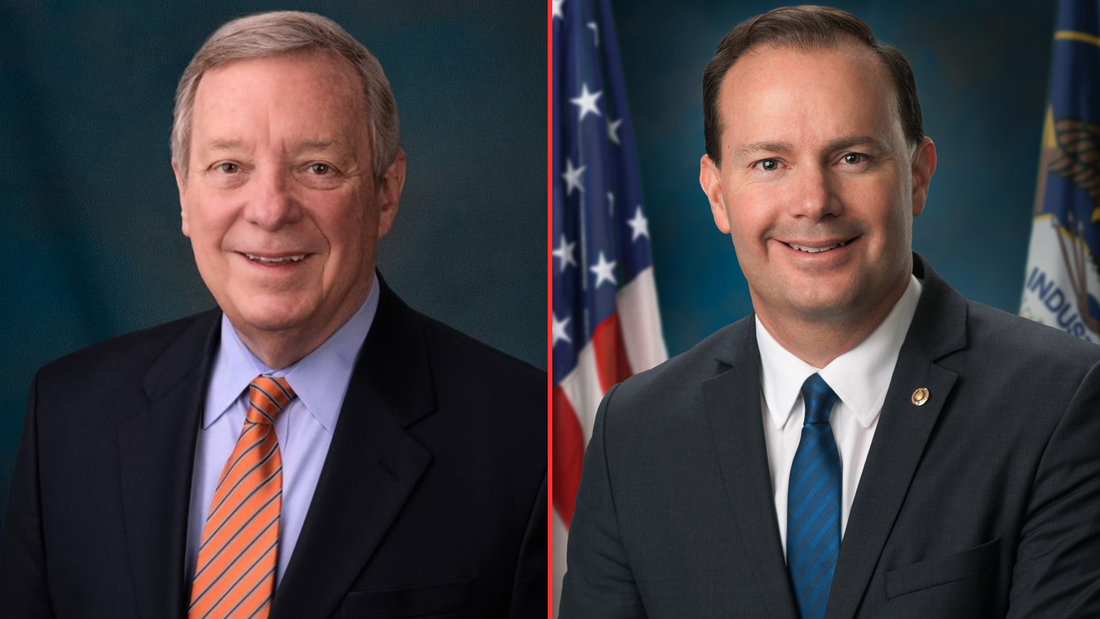
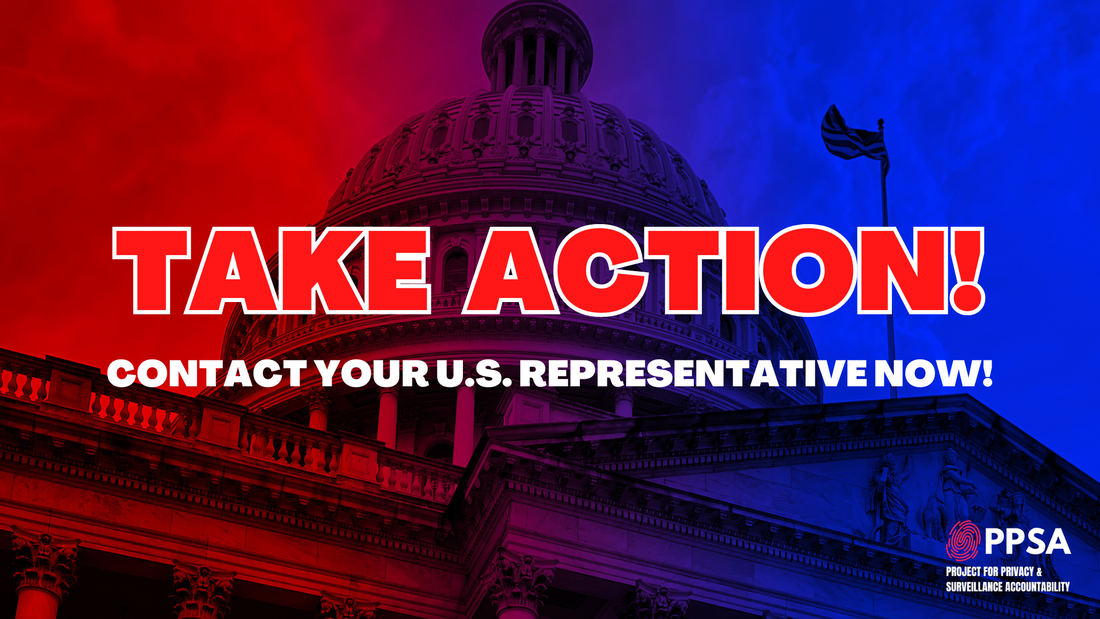
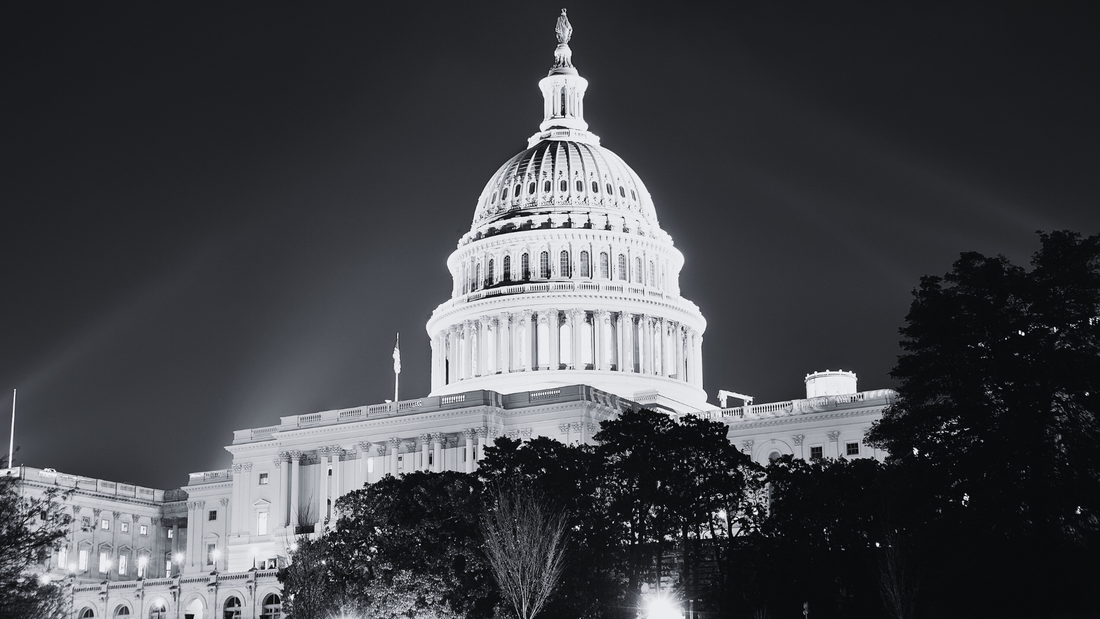
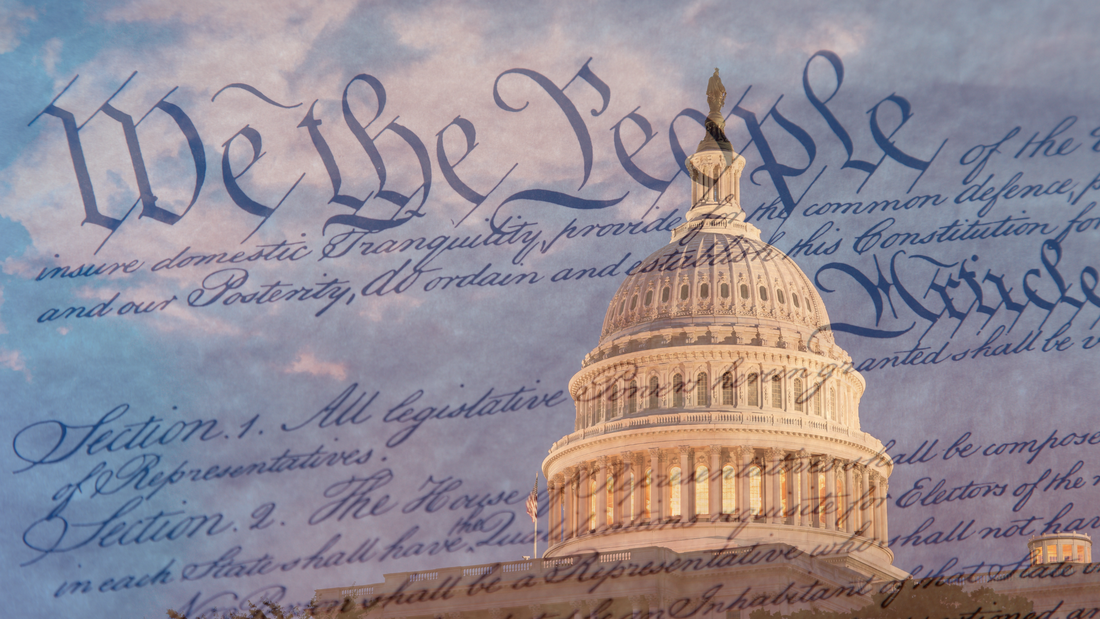


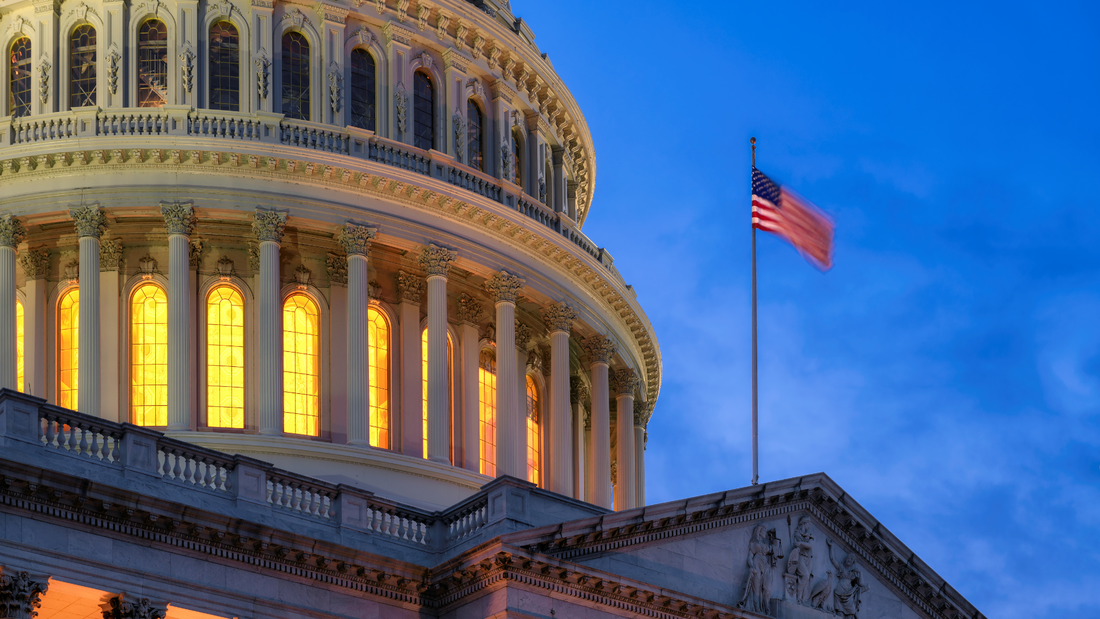
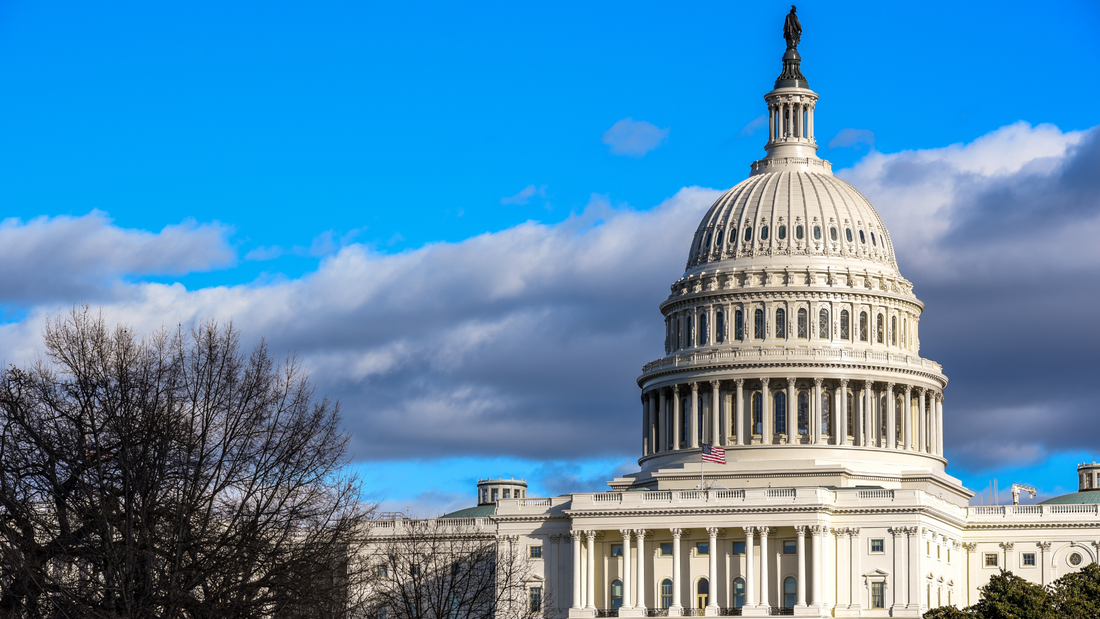
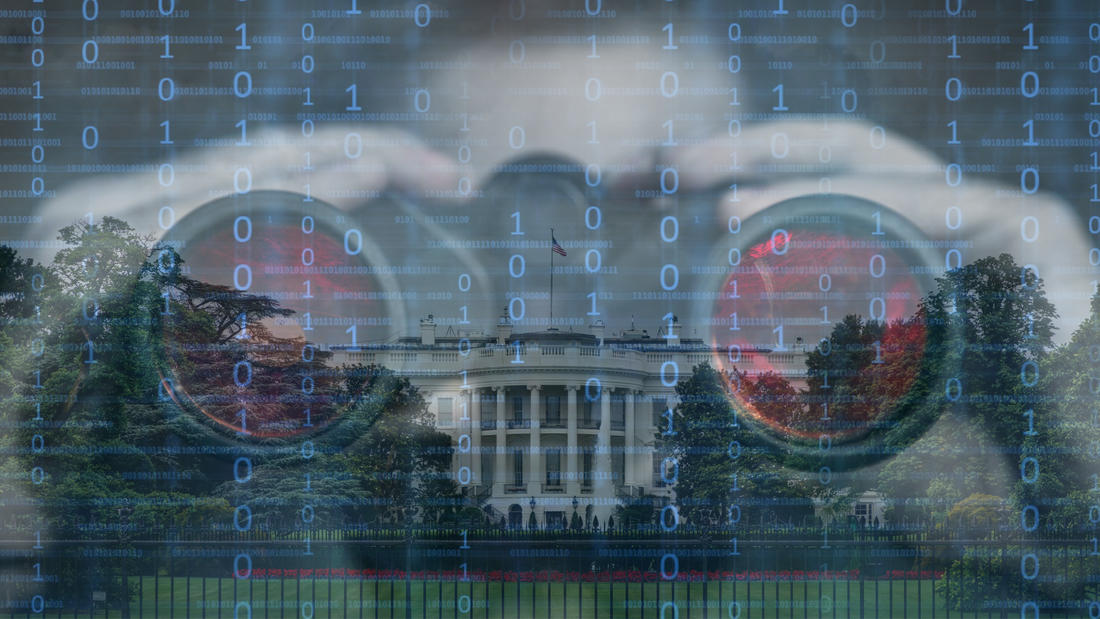

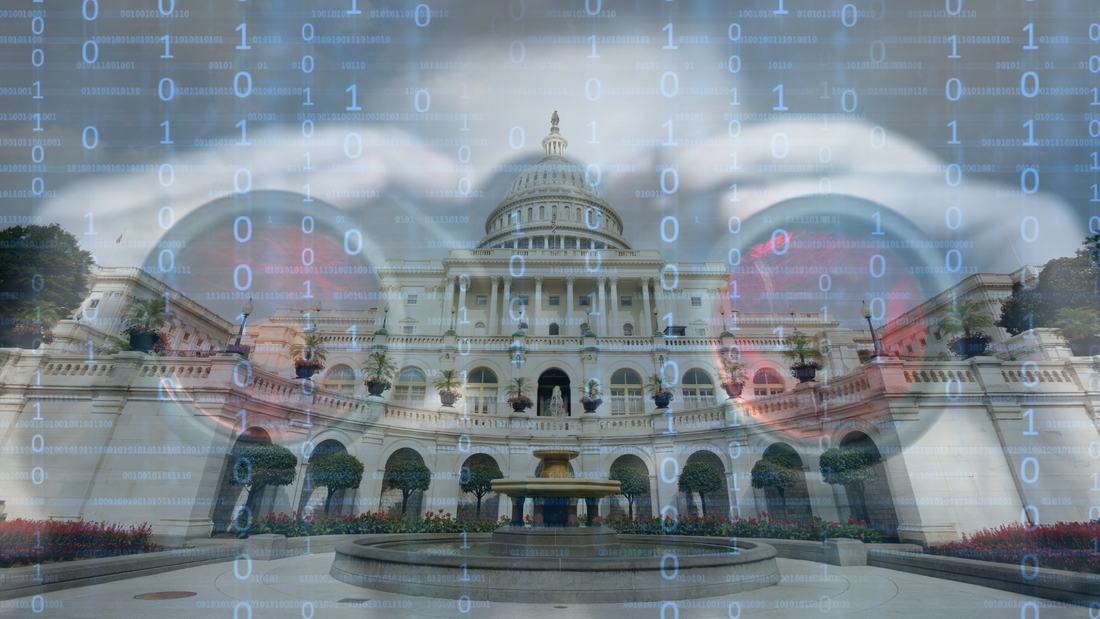

 RSS Feed
RSS Feed